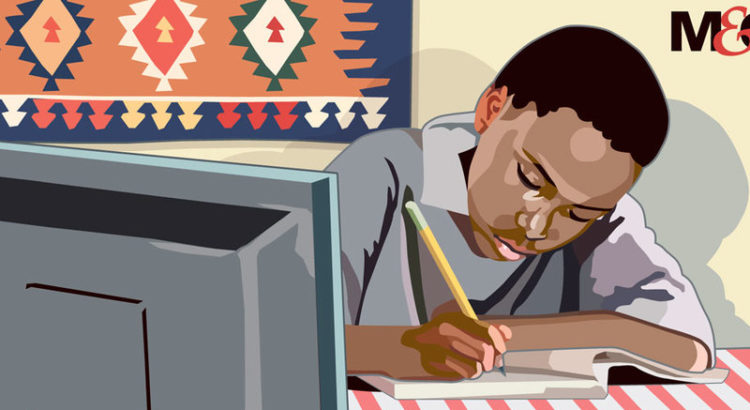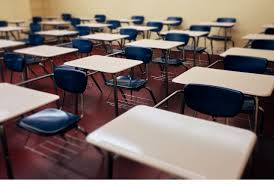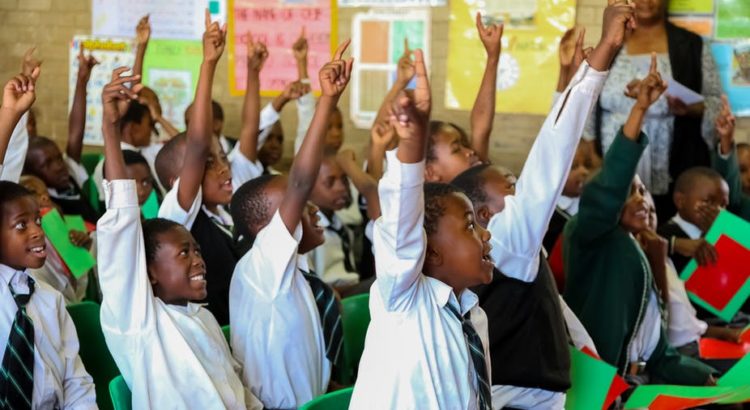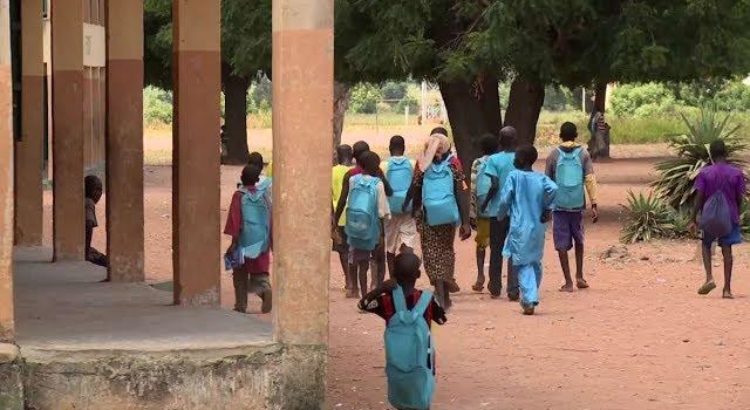Africa/Sudafrica/mg.co.za/Louise Schoonwinkel
Desde su legalización en Sudáfrica en 1996, la educación en el hogar ha estado en un camino de crecimiento constante. Según el censo de 2011, había 56 857 niños escolarizados en casa. Recientes estimaciones no verificadas han puesto este número en 100 000.
Como el mayor proveedor de educación en el hogar del país, Impaq tenía solo 400 alumnos en 2002.
Este número aumentó a 16 000 en 2018 y se espera que supere los 18 000 en 2019.
Este crecimiento se ha producido en el contexto de un panorama educativo cambiante.
Tradicionalmente, la educación en el hogar ha apelado a una variedad de necesidades, desde atletas infantiles profesionales que tienen horarios de entrenamiento exigentes hasta familias que viajan regularmente. También es para los niños que viven lejos de las escuelas, como en las zonas agrícolas remotas.
Pero se está convirtiendo en una alternativa viable para los padres que luchan para que sus hijos sean colocados en escuelas, donde la alta demanda ha llevado a espacios limitados e incluso al hacinamiento.
El departamento de educación básica está trabajando arduamente para abordar estos problemas, pero la educación en el hogar puede ayudar a aliviar esta demanda en nuestro sistema escolar.
Lo que es importante tener en cuenta es que los alumnos que se unen a proveedores de planes de estudios como Impaq siguen el mismo plan de estudios y la Declaración de política de evaluación que sus compañeros de la escuela. También están sujetos a los organismos examinadores supervisados por Umalusi, como el Instituto de Evaluación Integral de Sudáfrica y la Junta de Examen Independiente. Debido a esto, un alumno educado en el hogar puede regresar a una escuela tradicional en cualquier momento.
Para los padres que están considerando educar a sus hijos en el hogar, es fundamental considerar varios factores que pueden hacer que tal esfuerzo funcione.
La primera es que los padres deben estar preparados para asumir una mayor responsabilidad por las necesidades de aprendizaje diarias de sus hijos.
Es importante utilizar un proveedor que proporcione un cronograma y una estructura de lo que se debe hacer y cuándo.
También se proporcionarán libros, incluidas las evaluaciones que deben completarse con el niño.
Los padres también obtienen guías de facilitador detalladas, que les dicen cómo enseñar una materia.
Es esencial que los niños educados en el hogar practiquen los conceptos que están aprendiendo. Si un niño está haciendo esto, se hará evidente muy rápidamente si hay un concepto que el niño no está entendiendo.
A muchos padres les resulta más fácil enseñar un programa de estudios de grados tempranos como el grado 1, pero a medida que los niños avanzan más alto en los grados, estos padres generalmente buscan la ayuda de un tutor. Hay cientos de tutores en todo el país y son independientes de los proveedores de educación en el hogar.
Aunque los tutores ofrecen una mayor asistencia, es importante recordar que los padres deben asumir la responsabilidad de la educación del niño hasta el grado 9. Esto significa que el tutor está allí para recibir apoyo adicional, pero no puede hacerse responsable de todo.
Según la ley, un padre debe registrar al niño en el departamento de educación.
Hacer educación en el hogar tampoco significa que un niño se pierda actividades sociales y de integración cruciales. De hecho, la educación en el hogar puede aumentar esto porque los niños pueden tener más tiempo para participar en varias actividades extracurriculares e interactuar con una variedad de compañeros. Por ejemplo, hay comunidades de educación en el hogar que organizan deportes y otras actividades como el debate. Incluso hay despedidas matriciales.
Con todo, la educación en el hogar puede ser una experiencia enriquecedora para padres e hijos, pero requiere un cambio de mentalidad.
Antes de dar el salto, tanto el padre como el niño deben estar listos para asumir las responsabilidades que conlleva este tipo de aprendizaje.
Louise Schoonwinkel es la gerente general de Impaq, una subsidiaria del Grupo FutureLearn
Fuente: https://mg.co.za/article/2019-03-01-00-home-education-is-a-viable-alternative













 Users Today : 22
Users Today : 22 Total Users : 35460325
Total Users : 35460325 Views Today : 27
Views Today : 27 Total views : 3419055
Total views : 3419055